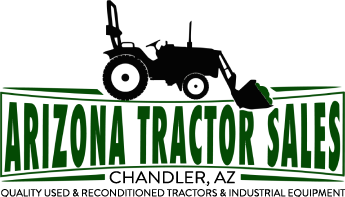Service intervals for your equipment
Tractor maintenance schedules are highly contingent on the specific manufacturer and model of the tractor in question. This variability stems from the diverse engineering designs and operational requirements across different brands and models. However, amidst this diversity, there exist some overarching principles and recommendations that can serve as a general guideline for ensuring optimal upkeep and longevity of the tractor.
Delving into these recommendations, it's imperative to underscore the importance of regular checks and servicing intervals. At intervals as frequent as every 10 hours of operation, a comprehensive inspection regimen is advised. This includes scrutinizing crucial components such as the oil level and coolant level, meticulously examining the air filter, ensuring optimal tire pressure, and conducting a thorough visual inspection of the tractor for any signs of wear or damage.
As the operational hours accrue, typically around the 50-hour mark, more involved maintenance tasks become necessary. This stage necessitates changing the engine oil and oil filter, assessing the hydraulic fluid level, inspecting the fuel filter for any potential issues, and once again, meticulously examining the tractor for any visible signs of wear or damage.
As the tractor continues to be in service, hitting the 100-hour mark signifies the need for a more comprehensive engine service. This involves delving deeper into the engine's inner workings to ensure optimal performance and reliability.
Subsequently, at the 200-hour juncture, a more extensive maintenance routine is required. This includes not only changing the engine oil and replacing the oil filter but also conducting a meticulous examination of the steering linkage and front wheel alignment. Additionally, this interval mandates a thorough inspection of the tractor's overall condition, paying close attention to belts, hoses, hydraulic lines, and once again, the air filter, which may require replacement to maintain peak efficiency.
Lastly, on an annual basis, a comprehensive maintenance check is recommended. This includes revisiting critical components such as belts, hoses, and hydraulic lines to ensure they're in optimal condition. Moreover, replacing the air filter at this juncture helps to maintain clean airflow, crucial for the engine's efficiency and longevity.
In essence, while tractor maintenance schedules may vary based on manufacturer specifications and model intricacies, adhering to these overarching guidelines can significantly contribute to the smooth operation and prolonged lifespan of the tractor.
Give us a call to schedule your next service interval.
Should you require additional assistance or have inquiries regarding service, tractors, implements, or any other equipment-related matters, please feel free to reach out us directly at 866-414-9759. Don't hesitate to inquire about our current tractor supply when you get in touch. We're here to help!

